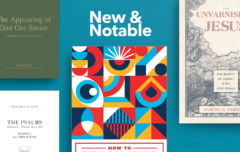Earlier this week I read the book The Shallows by Nicholas Carr–the guy who wrote the infamous article “Is Google Making Us Stupid?” It’s a fantastic book and addresses many of the kinds of questions I’ve been asked and (hopefully) answering in my own book. Seriously, you should consider reading it.
Carr looks primarily to what the internet is doing to our brains, to the way we think and even to the way we perceive ourselves. And inevitably he spends quite a bit of time looking to the history of communication, including the book. And here are a few of his thoughts about what makes the book such an amazing invention, especially when compared to digital readers. In them he captures just a bit of my passion for books.
It’s not hard to see why books have been slow to make the leap into the digital age. There’s not a whole lot of difference between a computer monitor and a television screen, and the sounds coming from speakers hit your ears in pretty much the same way whether they’re being transmitted through a computer or a radio. But as a device for reading, the book retains some compelling advantages over the computer. You can take a book to the beach without worrying about sand getting in its works. You can take it to bed without being nervous about it falling to the floor should you nod off. You can spill coffee on it. You can sit on it. You can put it down on a table, open to the page you’re reading, and when you pick it up a few days later it will still be exactly as you left it. You never have to be concerned about plugging a book into an outlet or having its battery day.
The experience of reading tends to be better with a book too. Words stamped on a page in black ink are easier to read than words formed of pixels on a backlit screen. You can read a dozen or a hundred printed pages without suffering from the eye fatigue that often results from even a brief stretch of online reading. Navigating a book is simpler and, as software programmers say, more intuitive. You can flip through real pages much more quickly and flexibly than you can through virtual pages. And you can write notes in a book’s margins or highlight passages that move or inspire you. You can even get a book’s author to sign its title page. When you’re finished with a book, you can use it to fill an empty space on your bookshelf–or lend it to a friend.









